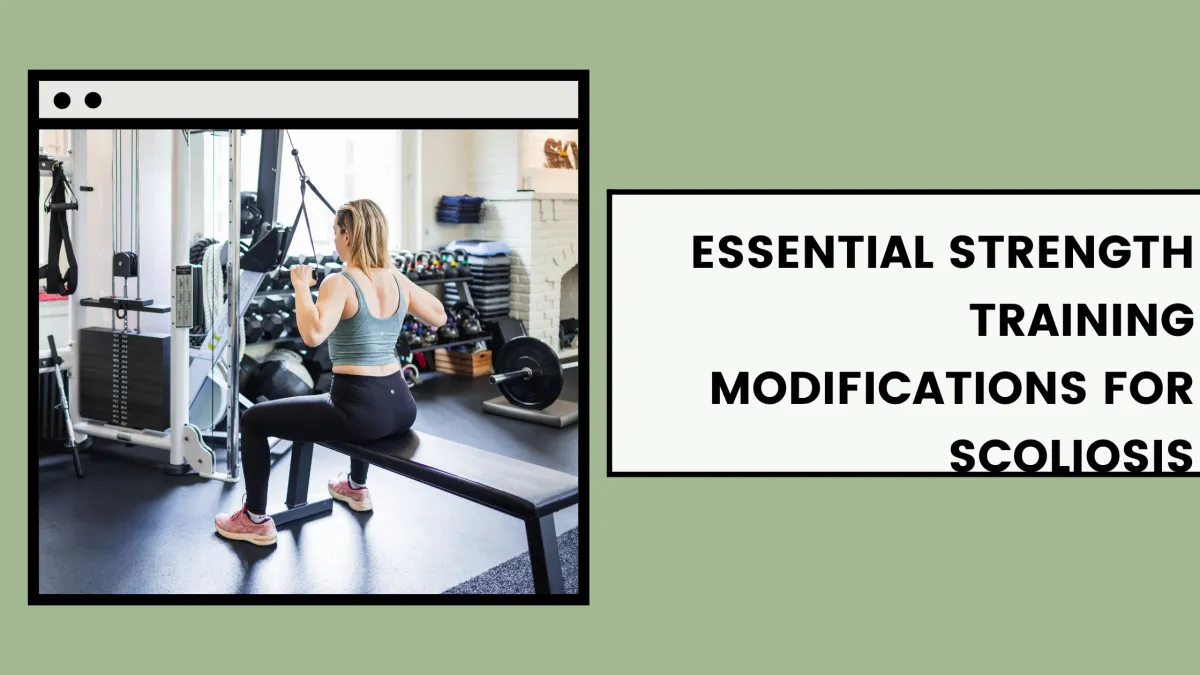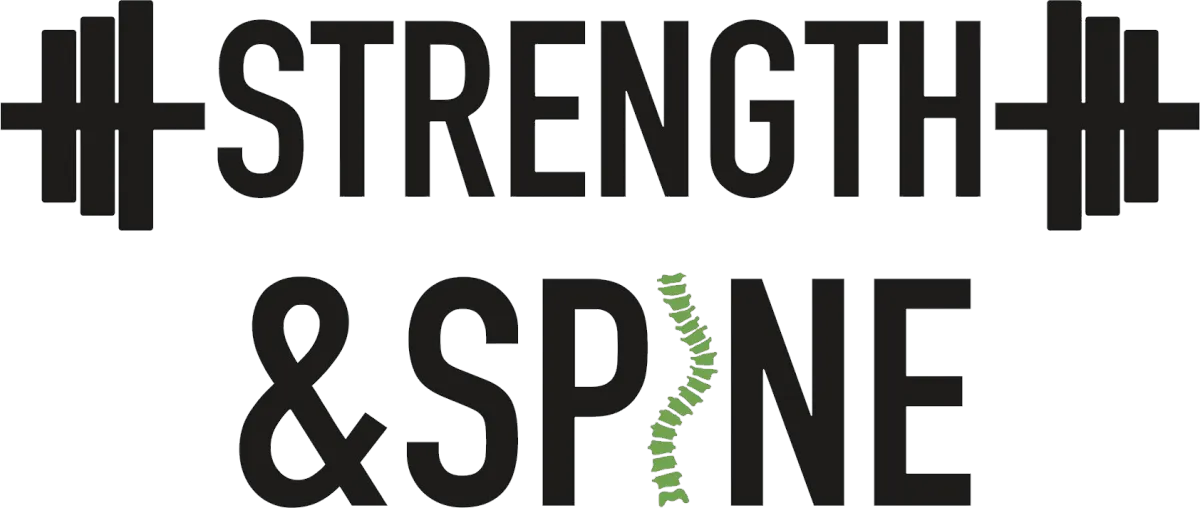Check Out The Latest Blog Posts To Learn More

Strength Training Modifications for Scoliosis
Essential Strength Training Modifications for Scoliosis
Strength training exercises, such as lifting weights, offer plenty of benefits to scoliosis patients.
Following a strength training routine — especially one designed by a scoliosis specialist — can help you improve your posture and reduce the pain caused by your curve. But sometimes, traditional strength training exercises aren’t helpful, and they may be uncomfortable or even painful.
That’s why it’s important to incorporate strength training modifications for scoliosis.
Why are strength training modifications for scoliosis important?
The curvature of the spine caused by scoliosis impacts our posture and alignment, which also affects our musculature (your muscles and bones hold each other together, after all). Generally, the muscles on the convex (prominent) side of your curve are overly lengthened, while those on the concave (sunken) side of your spine are extremely short/contracted.
If you build a strength training program that doesn’t account for those differences, it can cause challenges to your posture and even more pain. But by modifying your strength-building exercises correctly, you can address those alignment issues, correct your posture, and build the muscles you need to continually hold your body in that aligned position.
Understanding your curve and alignment...
The first thing to focus on is having a strong understanding of your individual curve and how to align your body when you start exercising. Often we notice our clients tend to lean into their curves, creating an imbalance in their posture where their muscles are activated more unevenly. This is why one of the first things we teach our clients is their standing postural correction. Maintaining this correction in their exercise program helps to more evenly balance their musculature and get inactive muscles to wake up and work harder.
What about strengthening one side?
Often people will ask me if it's important to strengthen the side of your body where the muscles are overly lengthened (convex / prominent side). That means adding more contracting and stabilizing exercises for that side. Potentially, yes, but that is very individual to the person. Research tells us that people with scoliosis often have weakness along the paraspinal muscles of their spine, but that weakness can vary to whether it's on the convex or concave side, depending on the curve.
This is why we find it important to incorporate hinging or deadlifting type movements in the standing posture correction. This allows you to evenly work those paraspinal muscles, hamstrings, and glutes to hold you in your best upright alignment.
For thoracic curves, we often notice imbalances in the musculature around the ribs and into the shoulder blades. We incorporate unilateral rowing exercises, like a bent over row, with special cues for rib alignment. Try this one and notice how your shoulder blade moves on your thoracic convex versus thoracic concave side. Do you notice a difference?
How does stretching come into play?
It is often helpful to elongate the muscles opposite your curve (the concave / sunken side). These are usually overly shortened because they most of their time in contraction. So the first step is to stretch and lengthen those muscles. Once they’re in a better position, you can work on strengthening them so they’re able to keep holding your body in the proper alignment.
Exercise should fit your body
It’s easy to think that strength training doesn’t really “count” if you’re doing modified exercises or skipping some activities that other people can do without issue. But the point of exercise (any type of exercise) is to support your body and its needs. That means your job isn’t to spend time in pain trying to make your body fit a specific exercise — the exercise needs to fit you!
Strength training can help reduce many scoliosis symptoms, especially if you modify your exercise routine to address those issues specifically. That means choosing (and adapting) moves to elongate overly tight muscles and active/contract those that are too stretchy.
If you aren’t sure exactly which exercises are best for you or how to modify a strength training routine to support your spine, we can help! The Scoliosis Strength Program offers one-on-one coaching in a completely virtual environment. You’ll work with an expert who can help you build exercise and lifestyle routines that work for you and your curve. Plus, progress check-ins help you stay motivated and allow you to see how far you’ve come!
Learn more about The Scoliosis Strength Program here!
WE ARE
Strong with Scoliosis
Start today on an exercise program that helps you become empowered, strong, and confident in your scoliosis curve.
FIND US
Strength and Spine
Online Sessions and Coaching
We work with clients all over the world
*Please contact us for in-person appointments*

